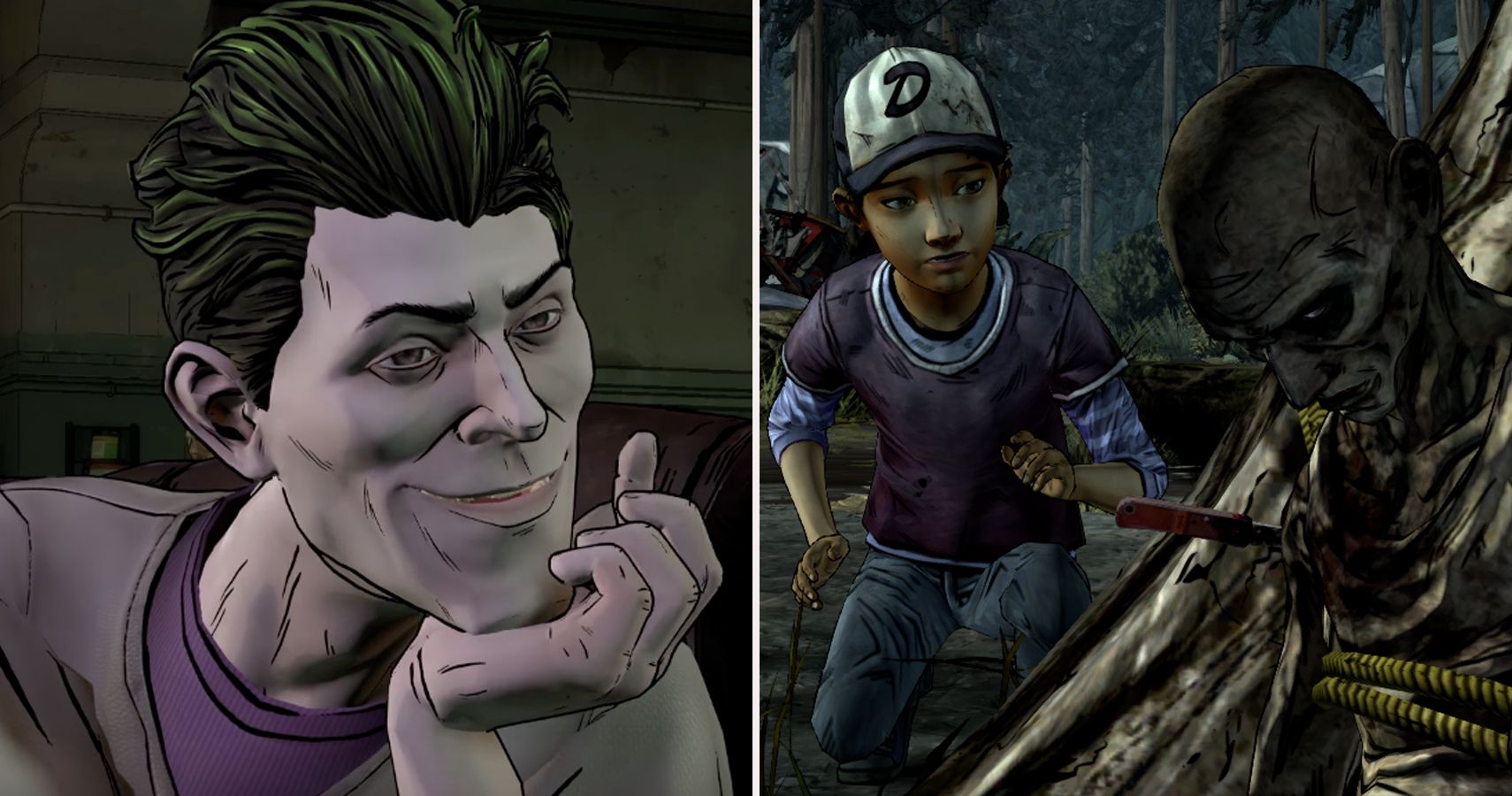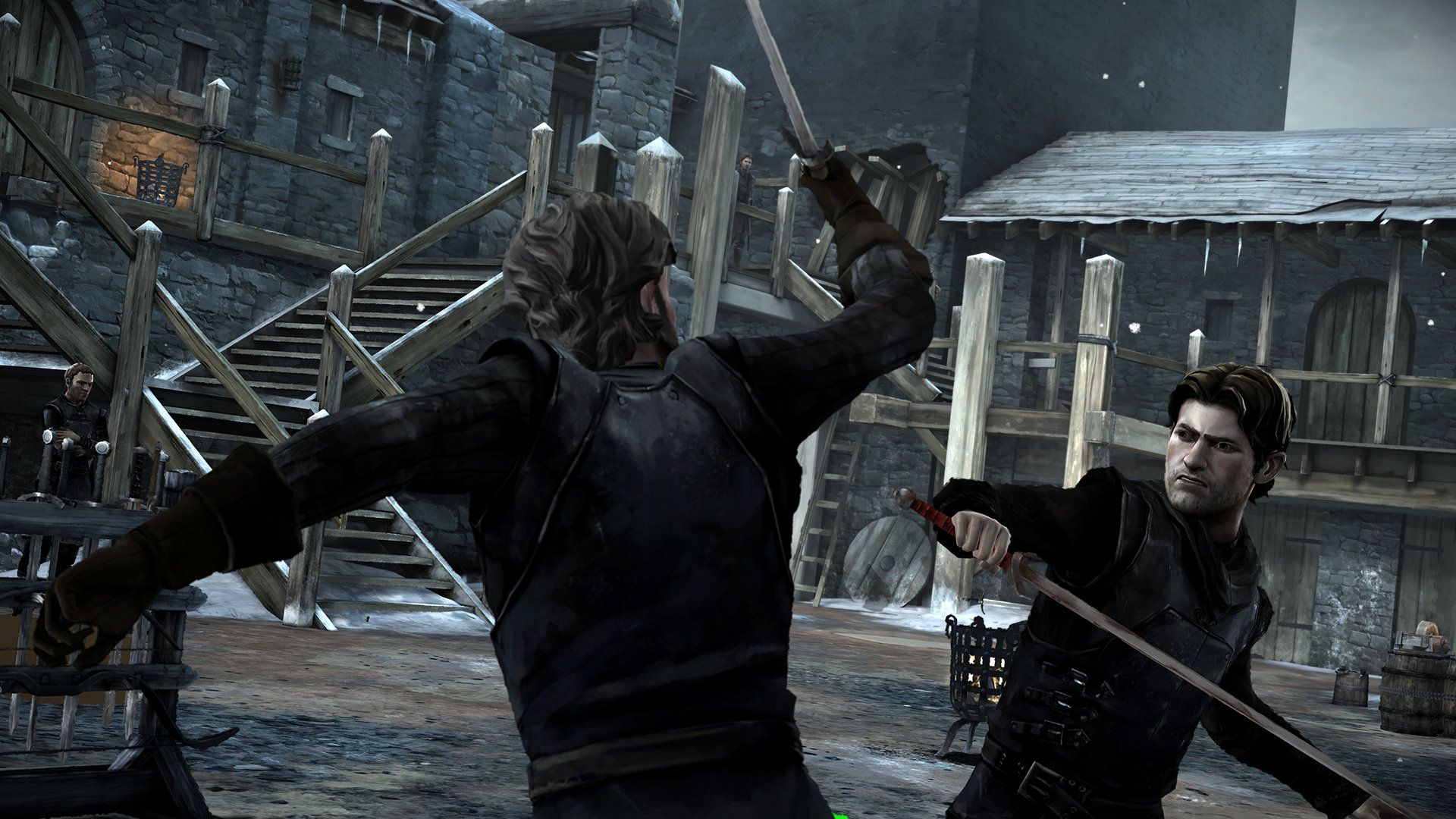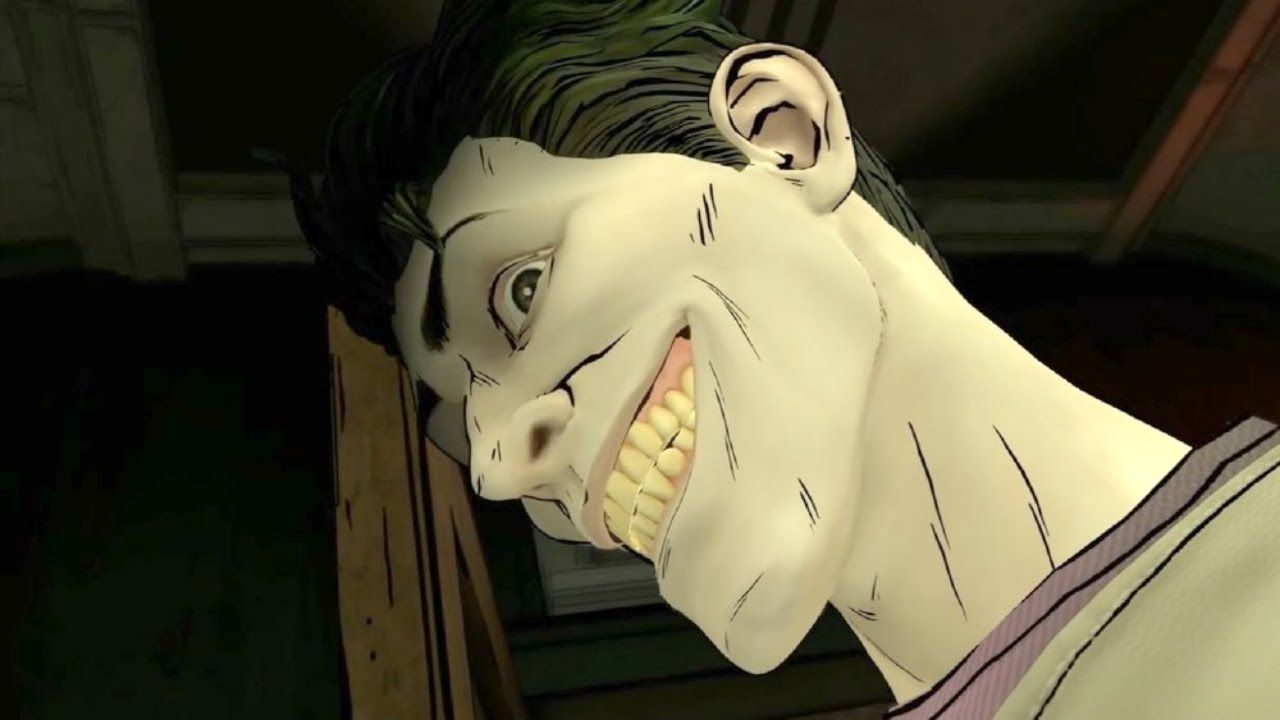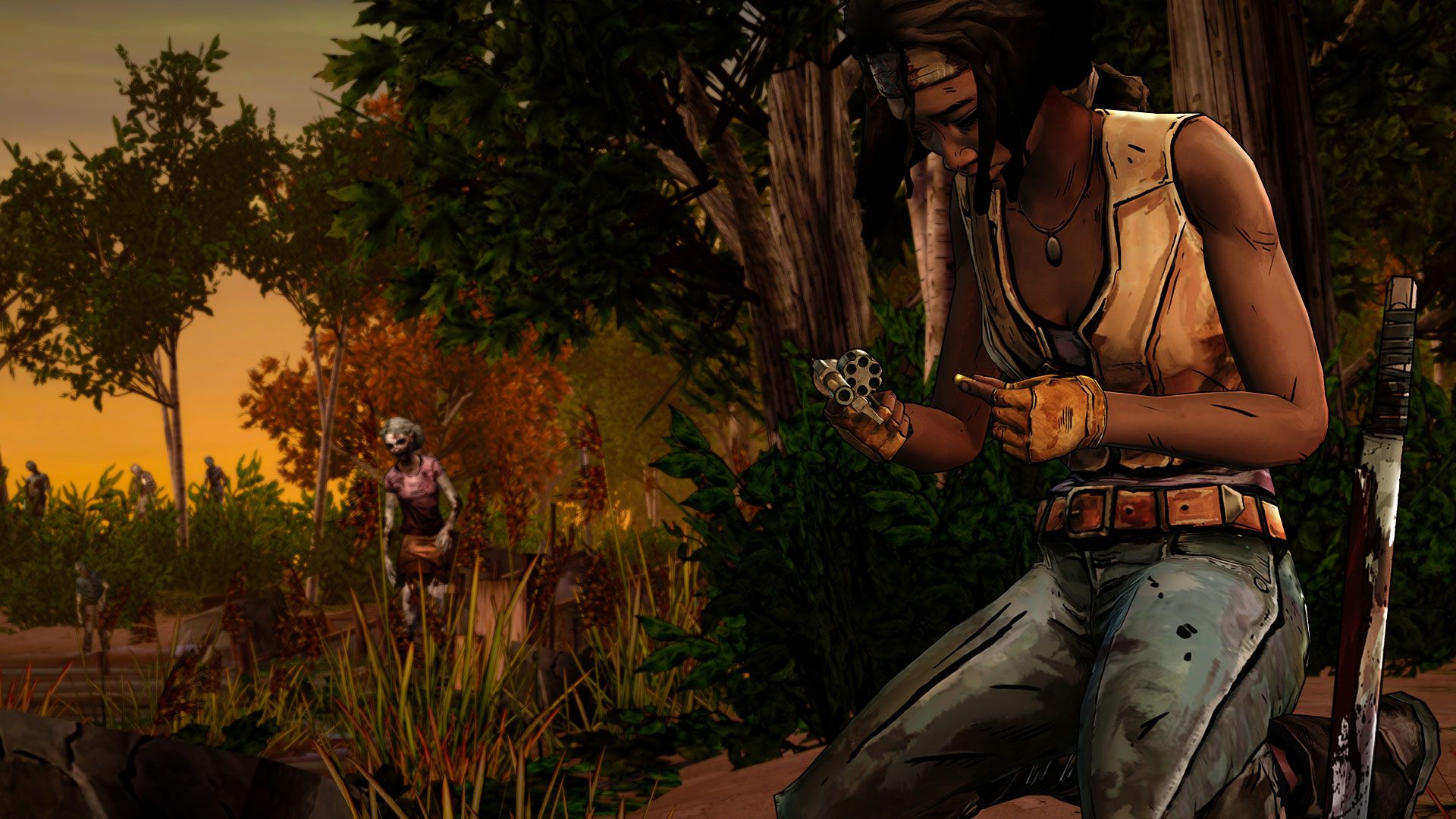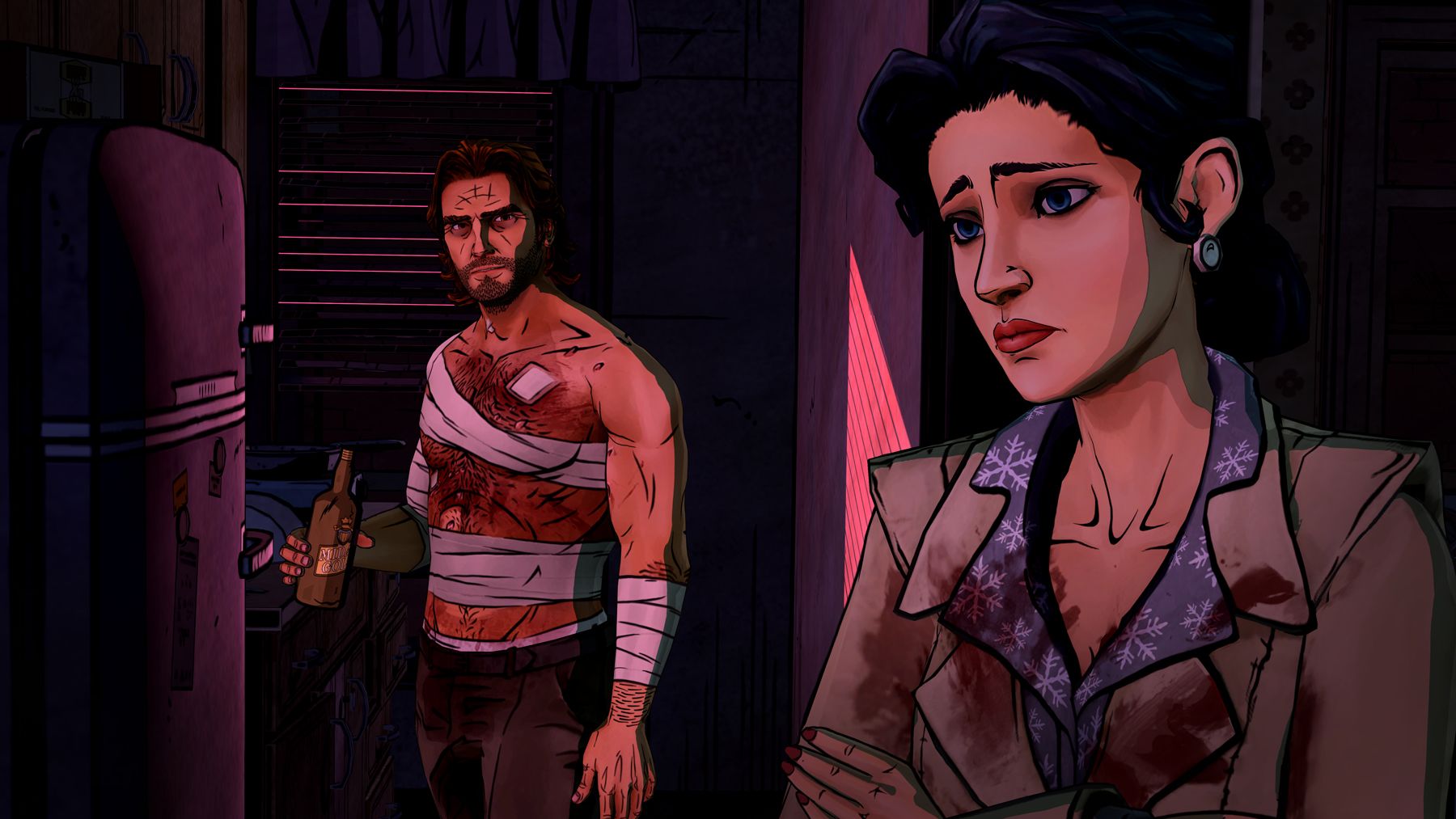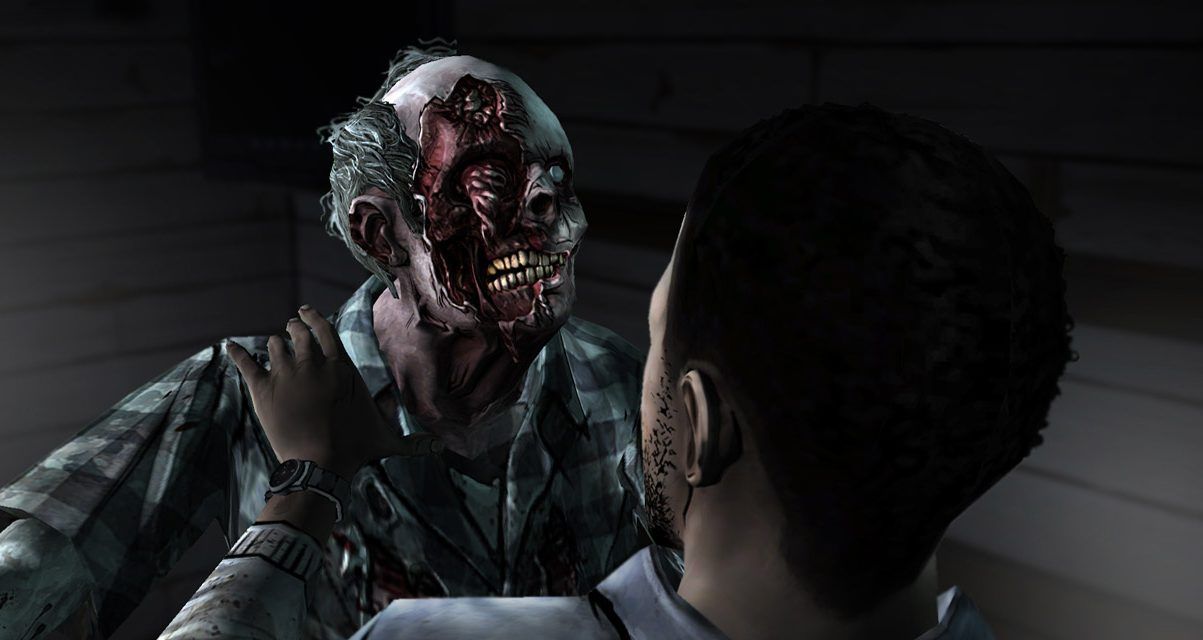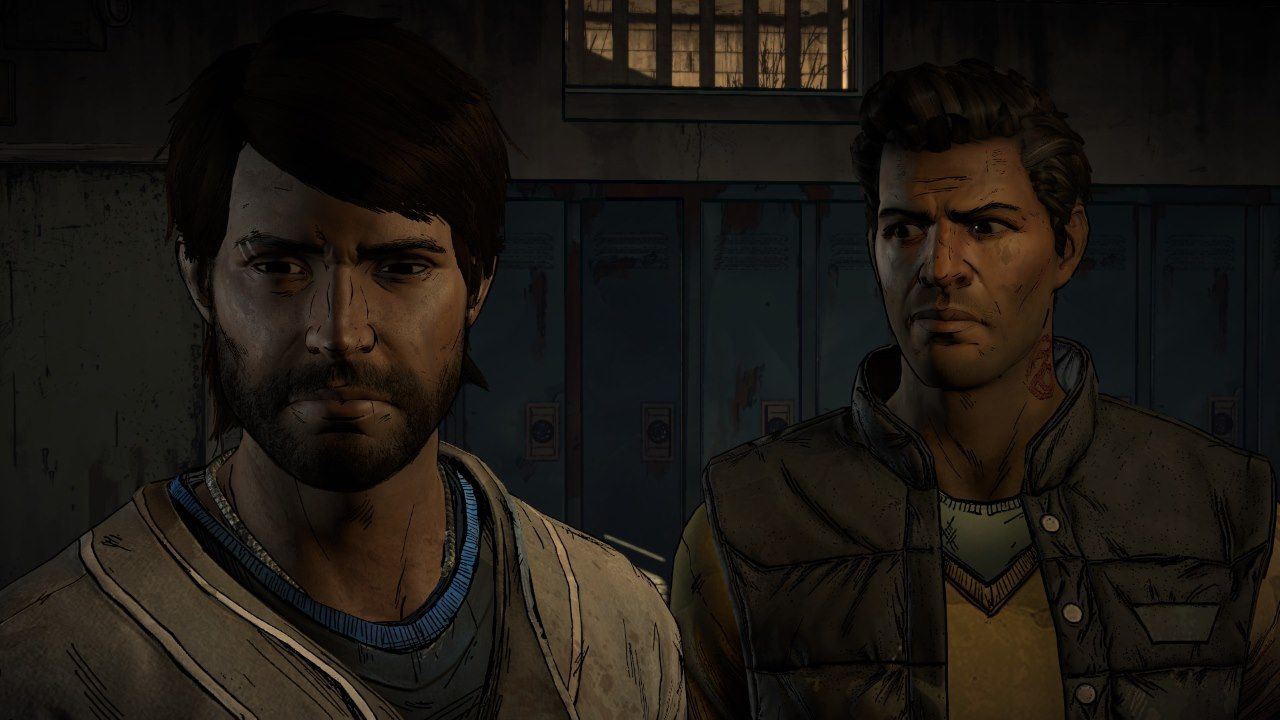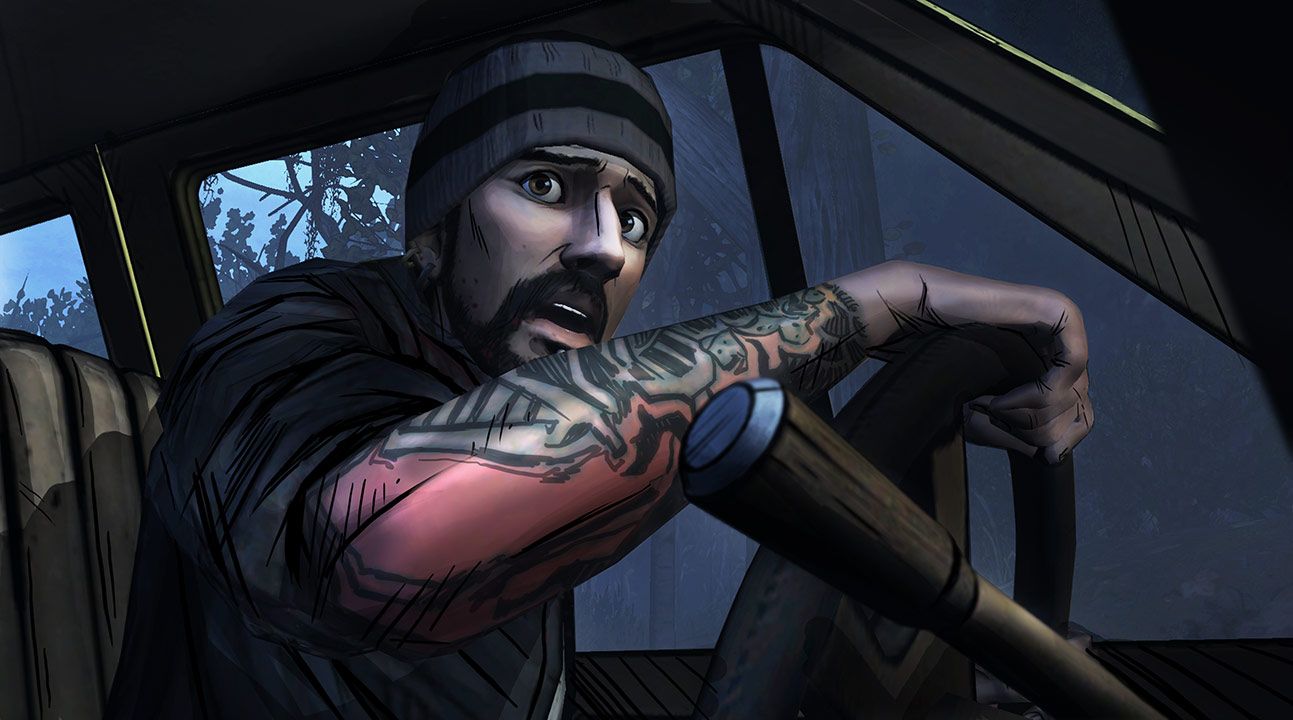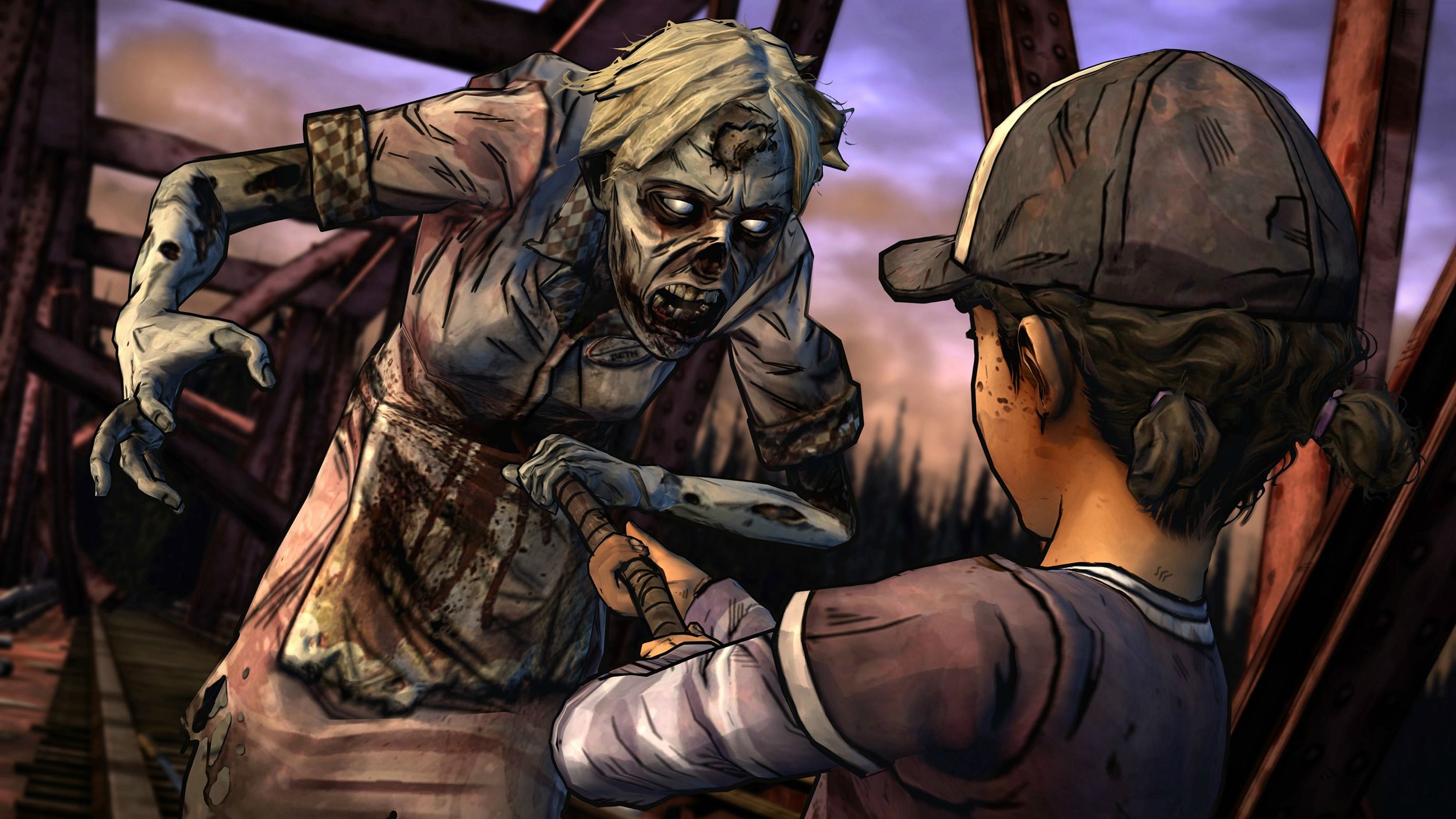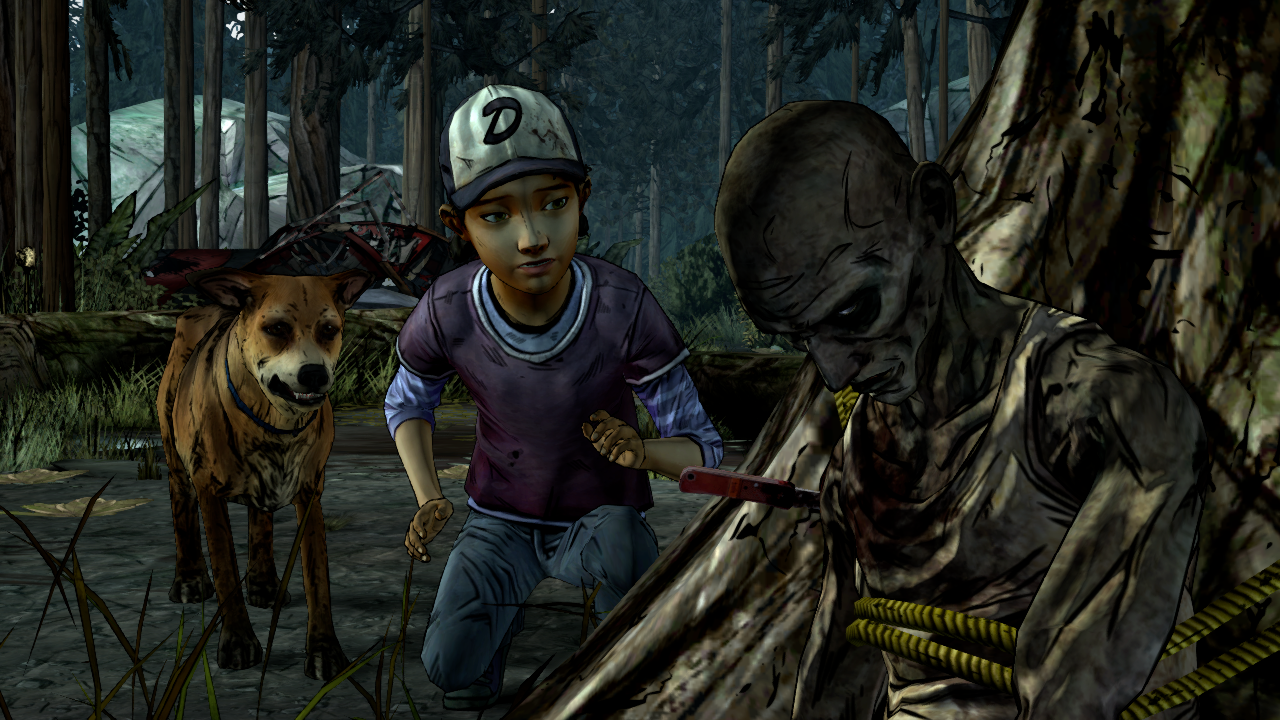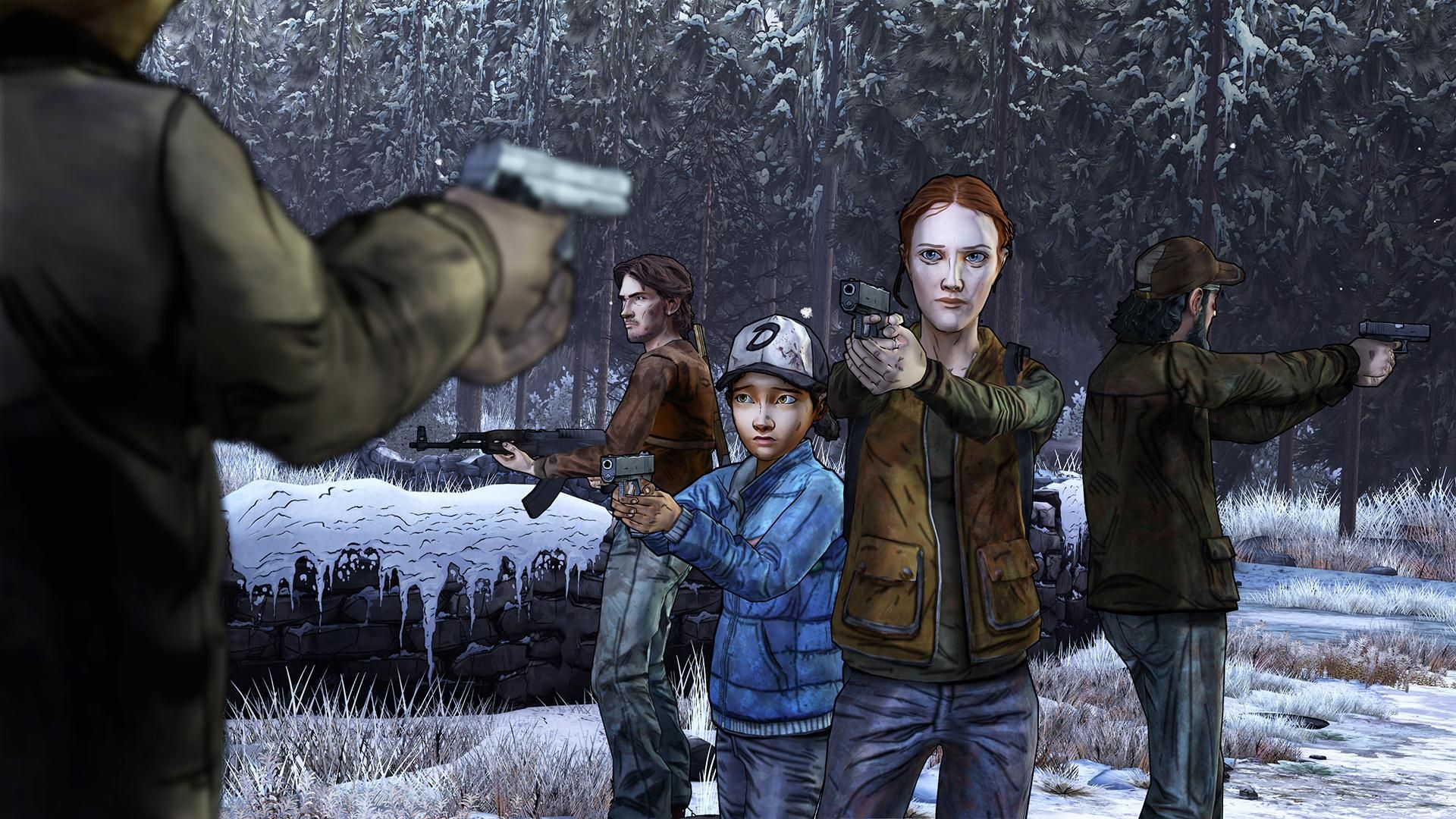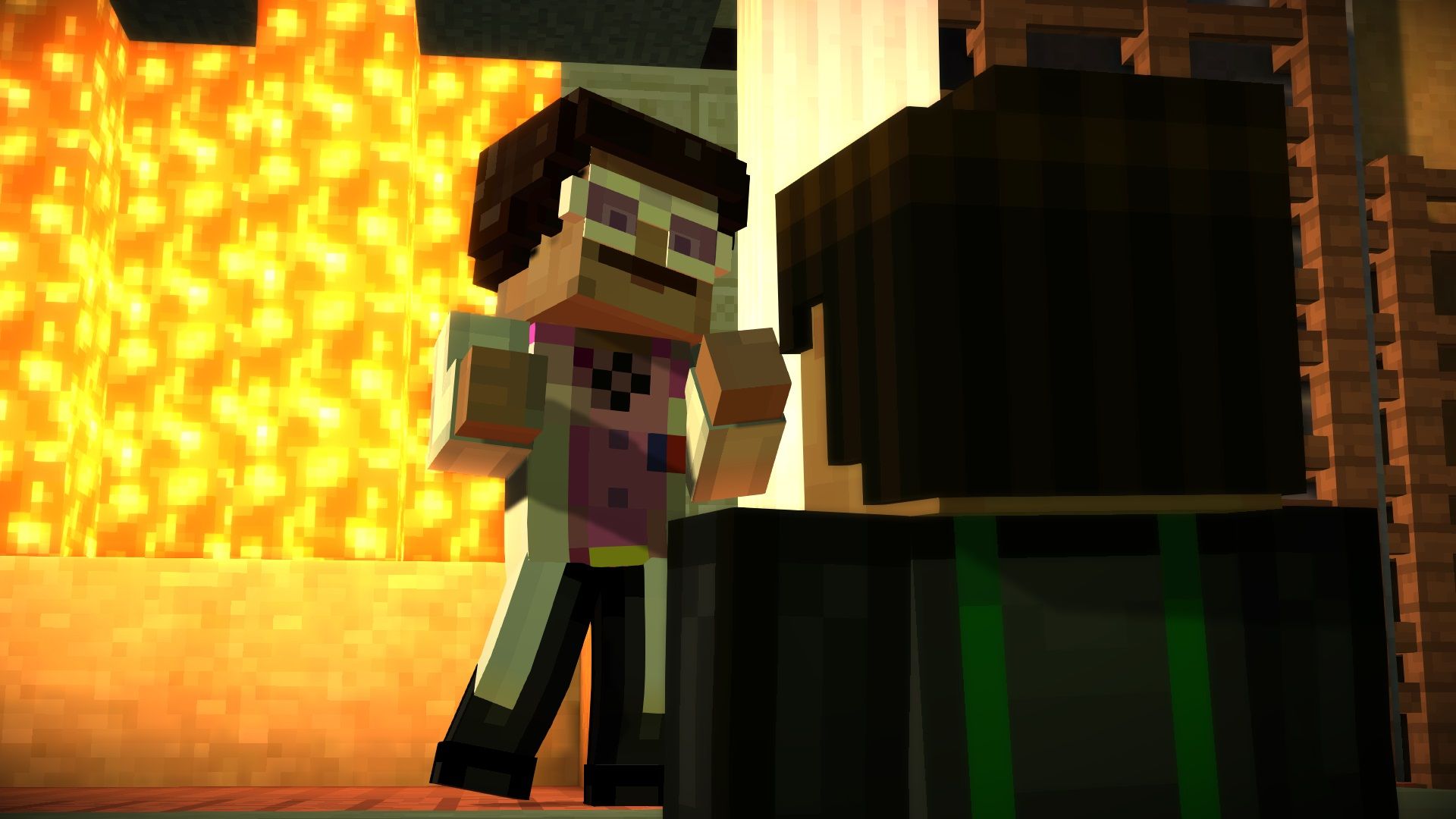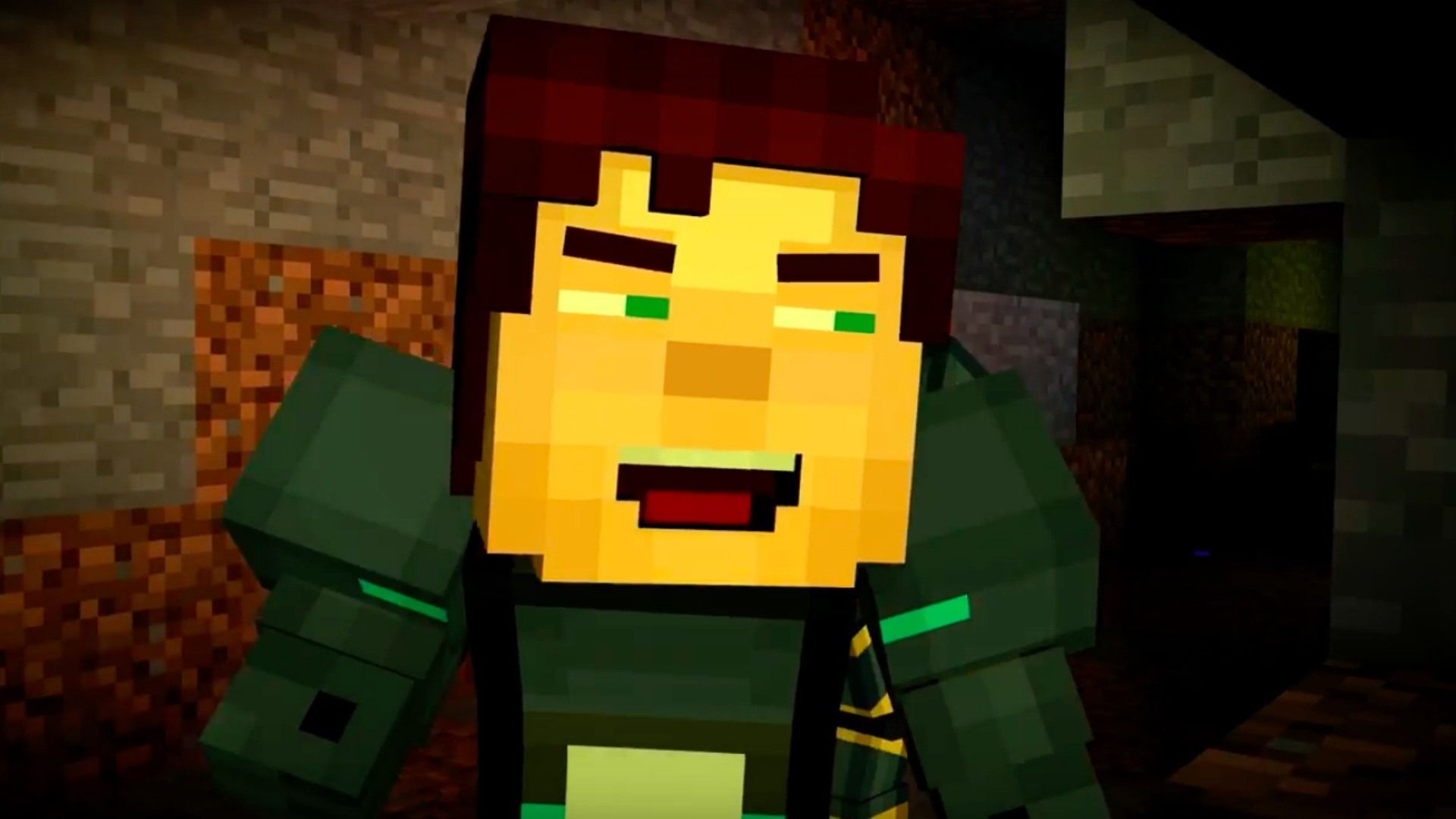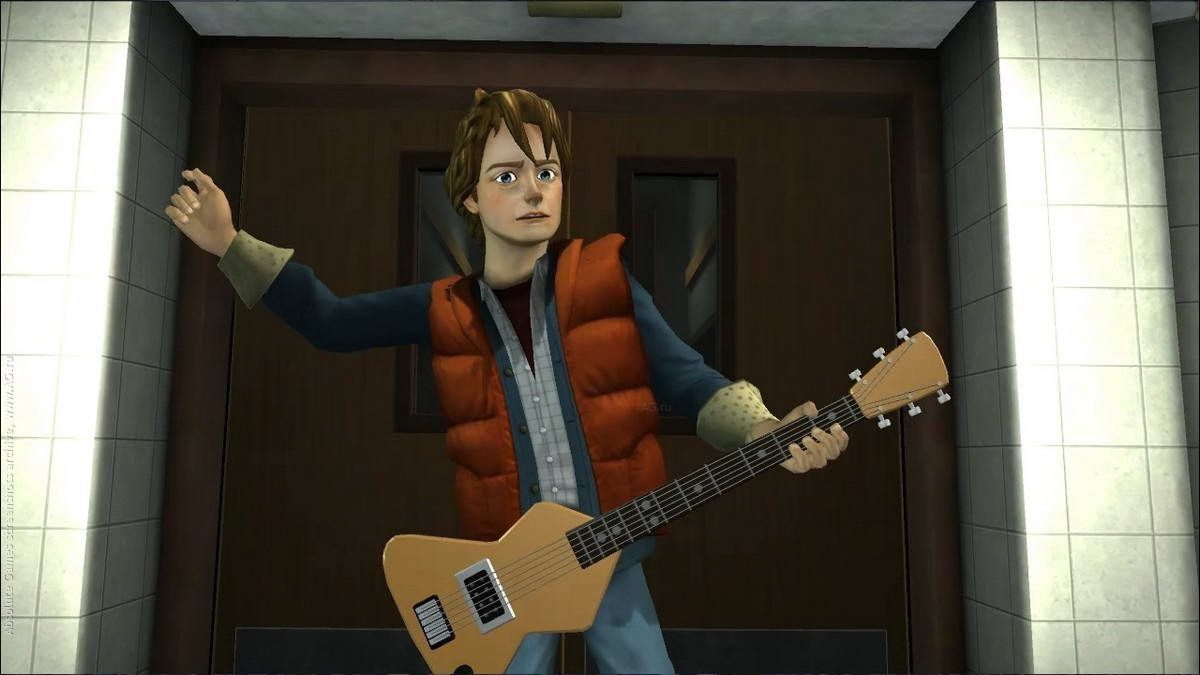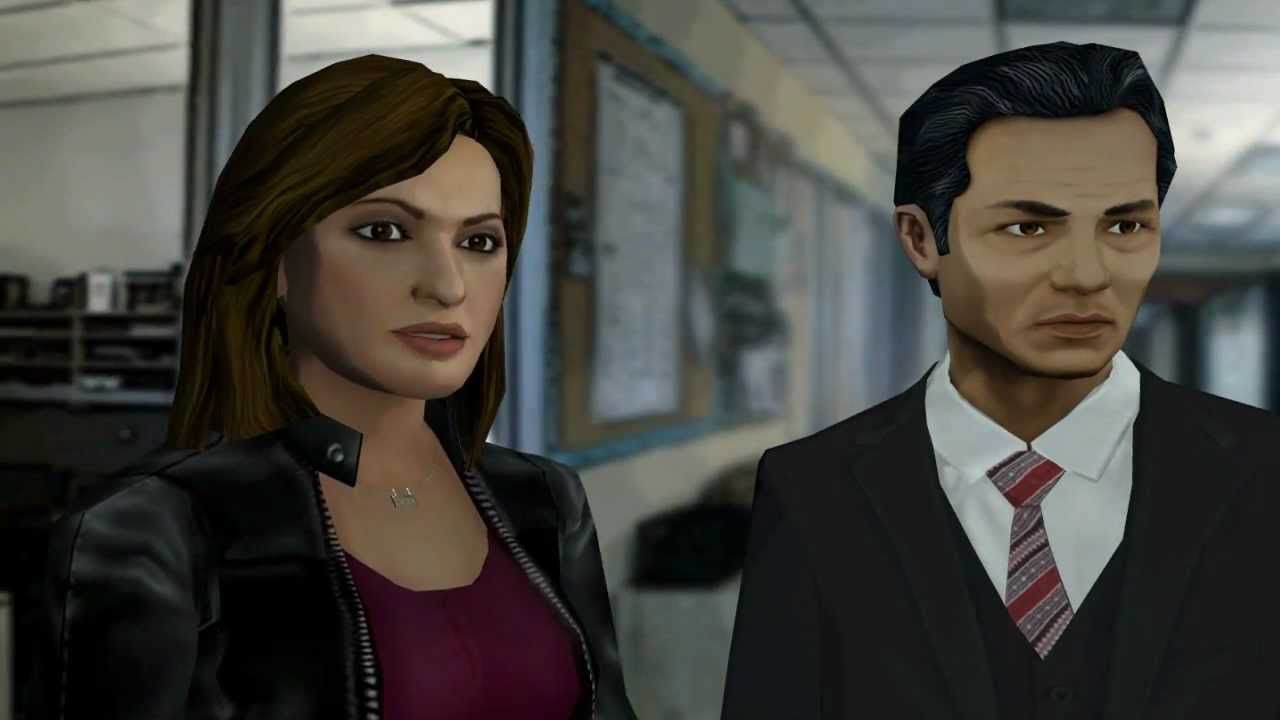Telltale has made such a name for themselves, that their company name is now a subgenre. Telltale games are character driven stories in beautiful shell shaded glory and all the player must do is press A or X a few times to progress. Ninety minutes later, you are done with the episode and have to wait months for the next one.
Then the thing all Telltale fans dread happens, the next episode sucks. I mean it really sucks. No story is progressed, the choices are meh, and the trailer for the following episode is so good it is just salt on the wound. Telltale makes bad episodes. In fact, they make a lot of bad episodes of all their titles. It isn’t just disappointing Game of Thrones season or the bland Batman season. Telltale even makes bad Walking Dead episodes.
You are probably thinking, “Sure there are a couple of episodes here and there that were less than fun, but they weren’t bad.” Did you play these episodes? They let down all the skillful writing and positive anticipation Telltale creates during their long release windows. These episodes are filler just so they can reach their target season number. They drain the player’s time and money, but most of all they break the trust Telltale has built. Make no mistake, these episodes are the worst they have ever put out.
15 Game Of Thrones, Episode 3: The Sword in the Darkness
Middle episodes are Telltale’s biggest problem and it is very present in the six-episode season of their Game of Thrones game. Episode 3 is Telltale’s patented 'things are almost about to happen' episode. By the start of episode 3, the player has gotten to know Mira, Asher, Gared, and all the other characters.
Each character makes headway in their perspective storylines and relationships, but it feels like it is holding the place of a much more exciting episode down the line. Gared must pick sides and Mira must cover her tracks to avoid Tyrell-Lannister tension. The episode has you forging deeper connections but just stopping before you get too excited. It is a tease of an episode just like in the TV show. Most of the actions and storylines could have been sprinkled into more action-packed episodes.
14 Game of Thrones, Episode 2: The Lost Lords
If the events of Episode 3 could have been spread out over the season to make it more exciting. Episode 2 could have been skipped altogether. The season premiere ended with shocking events that kept players hooked, but Episode 2 fell flat in keeping up the intensity.
Episode 2 offers a few new characters and locations that will shape the season. These things are important to the structure of the season, but it takes away from the episode. The player spends more time discovering The Wall and Yunkai then cashing in on the earth-shattering events of Episode 1. The episode is exposition heavy and does not advance any of the plots. The events could have been shortened and coupled with actual character deaths to make the episode worth the price.
13 Batman, Episode 4: Guardian Of Gotham
Enough with Westeros, Telltale also has put out a bad Batman episode as well. The World’s Greatest Detective had an overall mixed first season, but Episode 4 was a low point. Episode 4 opens with one of the wimpiest introductions of The Joker in Batman history. They make The Joker into an exposition machine, forcing the player to sit and listen rather than build him up like every other character in the season.
The episode feels like a roadblock to the multifaceted plot with odd character pacing and slow detective mode sequences. Many players also suffered from performance issues when attempting to play this episode, which didn't help. The only upside to the episode is how wary Gotham begins to feel toward Wayne and his actions. Episode 4 overall sputters along, dangling shiny new villains, but ultimately capitalizing on nothing.
12 The Walking Dead: Michonne, Episode 3: What We Deserve
Michonne is a great expansion to The Walking Dead Telltale Universe. Unfortunately though, Episode 3 completely undermines the three-episode arc. Michonne was a chance to really drill down and explore one character completely without the weight of the main plots driving the action forward. All that heavy lifting the first two episodes did was undone by Episode 3’s slow opening and need for a speedy and forced ending.
It carried all the hallmarks of a season finale, but pushed the issue. Characters spent a good portion of the episode telling the player and Michonne how to feel, especially during the funeral scene. The season wrapped up, but the player is left wondering if the finale would have lived up to the rest of the season and title character if they left parts of the story as ambiguous.
11 The Wolf Among Us, Episode 4: In Sheep’s Clothing
The noir style and feel of The Wolf Among Us is the game’s strongest point. The translation from graphic novel to Telltale game works beautifully. Sadly, Episode 4 filled a hole in the production calendar so Telltale could sell five episodes.
The buildup, mystery, and intrigue is at an all-time high after Bigby gets closer to the truth in Episode 3. The introduction of the Crooked Man in Episode 3 set the bar high for Episode 4, but the episode was devoid of the hard choices Telltale built its empire on. The baddies don’t reappear until the end of the episode. Worst of all, no progression happens at all in the plot. A few new characters come in and a few meaningless conversations happen with Beauty and Beast. Episode 4 is the placeholder for The Wolf Among Us.
10 The Walking Dead Season 1, Episode 4: Around Every Corner
I know, I know. Season 1 of The Walking Dead is the most sacred Telltale season ever. However, it does not mean Episode 4 isn’t deserving of being on this list. Episode 1-3 mixed character development, hard choices, and shocking moments perfectly. Episode 4 does end shockingly, but it starts by not following up with the voice on the radio. Which should have been a sign for how disappointing episode 4 was going to be.
Episode 4’s sole purpose is to set up gaming’s most tear jerker moment in episode 5. That is all the episode is; a setup. There is no payoff for the player and no real progress made for the characters. The episode feels repetitive, even with the new backdrop of Savannah.
9 The Walking Dead Season 3, Episode 4: Thicker Than Water
Javi must confront whether family or friends are more important to him in this episode. It sounds more exciting than the actual gameplay. Like Season 1’s episode 4, Thicker Than Water is a placeholder with a doozy of an ending to keep you hooked for episode 5.
The opening flashback really drags the episode down. While any color to a character’s past is central to their growth, by the fourth episode, any flashback should have a monumental effect on the story. Javi’s flashback is better suited for an earlier episode. The episode then has a few bland character interactions before really popping off. Middle episodes are Telltale’s curse. They need to find a way to appropriately pace the action, as well as not put out entire filler episodes like this one.
8 The Walking Dead: 400 Days
In a poor attempt to hold over ravenous players, Telltale released 400 Days in between Seasons 1 and 2. Gamers were treated to a few vignettes of other survivors and even some crossed paths with well-known characters. It was more of a waste of time than a teaser to reignite excitement.
Telltale gives players the opportunity to get to know great, well-written characters. 400 Days tries to truncate that with a few quick exposition lines and a few location jumps. If Telltale wanted to keep everyone excited for the next season, then release a standalone like Michonne. Just visiting The Walking Dead universe with any old character you can think of is not enough.
7 The Walking Dead Season 2, Episode 2: A House Divided
Season 2 of The Walking Dead makes great strides to explore Clem’s character, but that is all the season excelled at. Episode 2 is all about getting to know the new group of survivors Clem has joined up with and the Episode lays it on thick.
The game forces the player to witness a lot of differing opinions, beliefs, and tolerances in a short episode. It is overwhelming to cram it all into one episode while also building up Clem and also learning to trust these new people. For the first time, Telltale overloaded an episode with too much to uncover. The ideas are not bad individually, but the episode ends up being one of the worst because at every turn Clem has to take a stance on religion or homosexuality. Spacing out these ideas and identities would have given Clem and player time to breathe.
6 The Walking Dead Season 2, Episode 1: All That Remains
Episode 1 of Season 2 feels more like “here we go again,” rather than “Cool Clem is now the playable character.” Telltale desperately wanted that not to be true. It is hard to come back from how Season 1 ended, but the episode could have felt more organic and authentic.
While it does show off Clem alone in the big scary world, it does not linger there long enough, as she's soon back in a group of survivors. The player and Clem are forced to meet new people that will betray her or die. It is formulaic and very video gamey. Clem has been through a lot and throwing her into another group right away felt like an attempt by Telltale to forget her first group. The episode didn’t need to rush headlong into the next group of messed up adults. It needed to explore the world through Clem’s eyes.
5 The Walking Dead Season 2, Episode 5: No Going Back
The final episode of Season 2 is not the emotional gut punch of Season 1. While it does say goodbye to all the characters, it doesn’t make the journey worth it. Clem should have set out on her own in the first episode. This would have created a different dynamic when she encountered the next group of adults. Instead, Season 2 forces Clem to grow as a character around these adults and, in the final episode, finally make the choice to venture out by herself.
By the ending sequence, when Clem is marching through the wilderness with nothing more than her confidence, the player is supposed to feel like it was all worth it. It just does not come across that way. That feeling existed after Season 1. After the horribleness that Clem witnessed in Season 2, she is lucky to be still all there.
4 Minecraft: Story Mode, Episode 2: Assembly Required
Minecraft: Story Mode was not as successful as the game it was based on, unfortunately. One of the reasons why was Episode 2. After a good first episode, the game veered off the road and crashed into a cornfield.
The characters around Jesse, especially the Order members, spent most of the time arguing and creating tension around past events. It makes the experience awkward and your actual choices appear meaningless because they do not impact the end of the world scenario before you. However, before a player can begin to scratch their head about all of this, the episode ends. It is criminally short.
Telltale knows how to build drama with characters, but does not in this episode. They also know how to pack a lot of emotion and power into an episode and do not in this one. So, what were they doing instead?
3 Minecraft: Story Mode, Episode 4: A Block And A Hard Place
Placeholder episodes should be done away with and Telltale should just release shorter seasons. Episode 4 is another in a long list (this list in fact) of waste of time and money placeholder episodes. Story Mode is not a great season to begin with, so this episode is especially annoying since it does not move anything anywhere.
Surprisingly it is the dialogue that suffers the most in this episode, something that many Telltale fans would not expect. Couple that with loose ends being tied up so neatly, that it is confusing where our heroes can go after this. Episode 4 delivers a dud and it isn’t a surprise.
2 Back To the Future, Episode 4: Double Visions
Telltale relies on their seasons as a whole to bail out any weak points or terrible episodes. Episode 4 in their Back To The Future season had Marty doing fetch quest after fetch quest until it bored players to death. There was no excitement or time traveling fun in this episode.
Previous episodes in the season had Marty engaging in some fun the film series was built on, from guitar battles to exciting chase sequences. That fun is not present in Episode 4. The witty banter and quippy lines are few and far between. The episode could have been a part of any game season, made by any developer. It is not a Telltale episode in the Back To The Future brand. It makes little sense of why they released the episode.
1 All Of The Law & Order: Legacies Episodes
In the world of Telltale adventure games, there are brands that translate well to their storytelling style and there poorly executed games. Law & Order: Legacies is by far the worst game and series of episodes they have ever put out. For those players that missed it, the episodes play like LA Noire, with none of the fun and all of the frustrating investigating.
Couple the slow boring gameplay with the weakest application of their signature art style, and Telltale made a beloved series into a waste of time. The episodes stress memorization rather than Telltale’s decision-based gameplay. It is easy to binge seasons of Law & Order, but it is nearly impossible to sit through any of these hour long episodes. While it looks like Law & Order, the episodes don’t play like Telltale’s finest.

